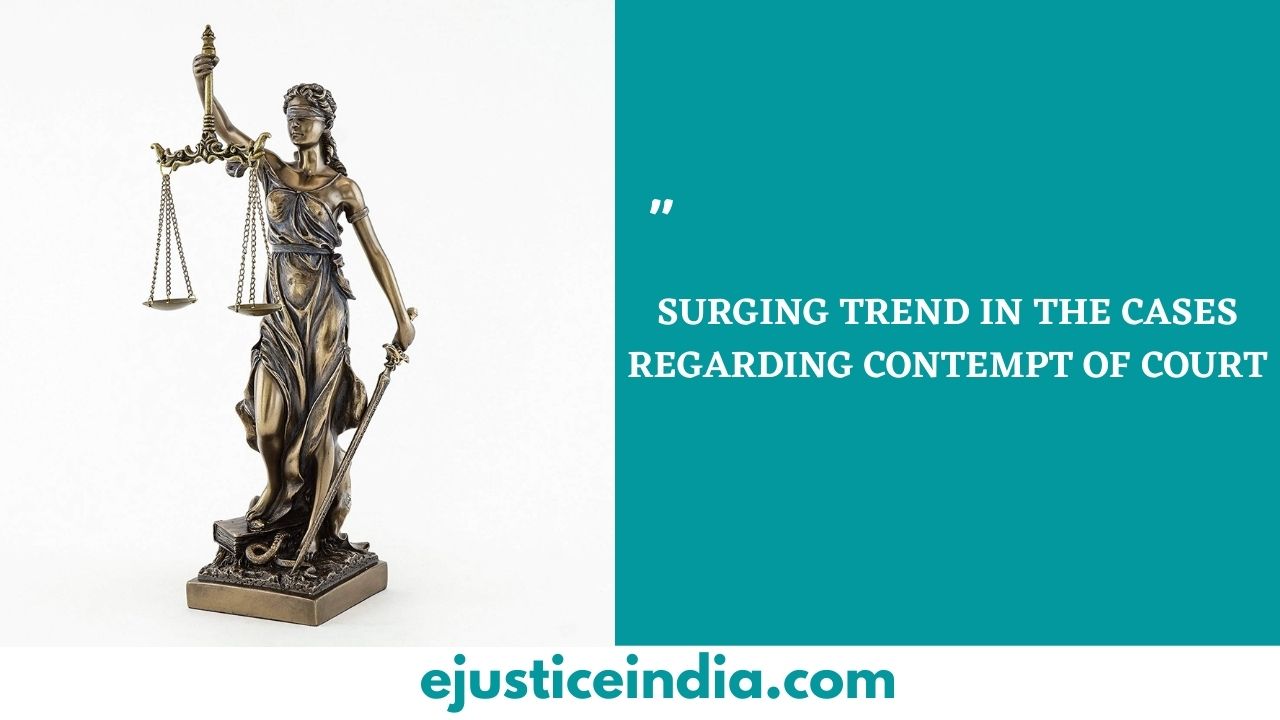Cyber Courts: Need for Today’s Reality
Cyber Security is a shared responsibility, and it boils down to this: In Cyber Security, the more systems we secure, the more secure we all are
Jeh Johnson
Author :- Tufel Sharif
Introduction of the Cyber World:
In the modern world, there is tremendous advancement in the technology and the discovery of the internet has led to connect any person with anyone in the world. That’s the reality, an individual and an organization, both are connected to each other by means of internet, and thus highly vulnerable to cyber-attacks. Noxious people and gatherings blossom with get-together data that can be utilized to upgrade their assault systems. Programmers/ hackers are getting increasingly centered on skewer phishing assaults, which are custom fitted to unique individuals, and any piece of data about you can be of help. The attitude of dealing with the cyber-attacks by an individual and an organization has to be changed, it has to be deal with the understanding that through online weapons, everyone is at the same level of being attacked.
A real need exists to utilize the advantages of present day innovation brilliantly to decrease the backlogs of the cases in the court. Cyber courts are a reasonable option in contrast to the unlimited defers that plague court agendas, yet just on the off chance that they prevail with regards to making courts progressively productive. The computer upheaval has smoothed out endless methodology in regular life. Transactions that used to take days would now be able to be finished online in short order. Computer clients can purchase books, doctor prescribed medications, and aircraft tickets from home. Financial specialists can buy and sell stocks and check their portfolios online in a moment or two.
Generally, the legal framework has not profited by this new technology. Traditionally, courts have been famously delayed in arriving at decisions. A long time or even decades can go under the watchful eye of an appointed authority or jury settles on a choice and that choice is maintained or dismissed by a higher court. Some portion of this postponement is legitimate. Courts are dependent upon innumerable procedural guidelines and must continue at a conscious pace to give both the parties a reasonable and evenhanded decision.
What is the need of the Cyber Courts?
With the advent of the technology, the cyber-attacks has been increased right from the hacking to the manipulating the user. The sectors like the education, hotel/ hospitality industry, the telecommunication, the e-commerce and retail, the health care, etc. are widely affected. The target, nature and the objective behind the attack may vary in each of these sectors, such as bullying and harassment in school or the espionage in the corporates or even in the government confidential data. Banking and finance department are usually the target of cybercrimes.
In India, due to the lack of awareness and the proper training in this new evolved field, the state and local police departments are unable to register, investigate and prosecute the cybercrimes. We may require specific Cyber Courts to guarantee quick trial and conviction. On the off chance that the speed of the cyber-criminal equity framework isn’t comparable with the fast pack of Cyber security, it will encourage cyber criminals. The greatest shortcoming is the lacking guideline of Cyber security. Cyber security is an extremely specific double use information that can be put to acceptable and terrible utilize like medication. Therefore, the calling of Cyber security should be managed like specialists, drug store, and so forth. Singapore has started to lead the pack and actualized this model.
Jurisdictional Issues:
Advocates of the digital court asserted that it would resolve worries about jurisdictional issues on the internet platforms like through websites or the mobile application. “Jurisdiction” is defined as “the geographic areas in which the court has power or types of cases it has power to hear.”[1] “It is the power of the court to decide a matter in controversy and presupposes the preexistence of a duly constituted court with control over the subject-matter and the parties.”[2] The Internet has created a new “virtual marketplace” where the buyer and seller can live on separate continents. A potential buyer in Georgia can purchase an item from a seller in Malaysia. If the buyer is dissatisfied with her purchase and cannot use a Malaysian court, she can bring a lawsuit in Georgia. The question is: Does a Georgia court have jurisdiction over a Malaysian national, based solely on the Internet transaction?[3] Nonetheless, which court will have the power to hear a case that which happened on the internet? In what manner can the domain of the internet be recognized so as to figure out which court that would have the purview in the issue? The difficulty in internet jurisdiction emerges because of the way that parties who are arranged miles separated are associated with one another through a virtual nexus. In this day and age, an individual tasting tea situated in suburbia of New Delhi will have the option to hack and get data from the PC of a multi-combination in New York.
In an ordinary case, the jurisdiction is decided by the two common factor: 1) where the defendant resides or 2) the place where the cause of action arises. But in case of the cybercrimes, the crime occur on the virtual and electronic platforms such as cyberspace, where the actual communication occurs. Here the internet user are arranged in physical areas and are dependent upon the local laws of that specific territory. This makes a web client, who has carried out a wrongdoing, inclined to the danger of being sued in any nation where another client can set up a case. In this manner, jurisdictional issues have goliath esteem in web wrongdoings. The unmistakable issue with respect to cyber purview lies in the inquiry whether to regard the internet as a physical area or to imagine that the web is a different universe entire together. In any case, there is no single uniform law or enactment that has been agreed between all the nations so as to control the web. An exemplary case of this is the way that the legitimateness of the substance of a site could contrast starting with one nation then onto the next.
Advancement in different nation:
Worldwide laws are early or advancing – GDPR of European Union is likely the main significant law. Nonetheless, critical strategic exercises are going on between major geopolitical and monetary influence and alliances and India is in the main part of yearly exchanges in Cyber security with U.S., EU, Japan, ASEAN, Commonwealth, Organization of Islamic Countries (OIC), and so forth.
We are well versed that everything around is Made of China, here again the China has proved to be among those leading nations to develop the Cyber courts which deals with the matter related to e-commerce and the internet. It has the jurisdiction to the disputes related to the sale and purchase on internet platforms; liability of seller; disputes related to the internet service provider contracts; online copyright infringement, etc. which has to be deal with the Chinese civil procedure code. In 2018, the Supreme Court of China has issued a judicial interpretation on hearing of the cases of these Cyber courts and also allowing the storing and verification of evidence through the blockchain platforms.[4]
In 2001, the House of Representatives of Michigan, United States, introduced a bill for creating Cyber courts and it was signed by the governor in 2002. Under the same legislation, the Supreme Court of Michigan would appoint elected judges who had to serve on the new court. The judges so appointed, would receive special technological training related to the cybercrimes and the internet platforms, to assist them in their new online duties. The objective was to deal with the modern problems by modern techniques such as the hearing via computers and appointment of attorneys through online platforms.
Perspective of India on cyber courts:
On a rough scale, India is highly vulnerable to the cyber-attacks due to its vast population ratio. The women and the kids are highly exploited due to which it becomes a task for the courts to cope a proper victimization. India’s vulnerability to cyber terror assault by terror gatherings is high. To pen down some benefits of the cyber courts which is a full-fledged system of with proper implementation will help in eliminating the court expenses such as on infrastructure, staff, security, etc. Firstly the parties involved in the cases won’t be required to come to court in-person, which reduces the travel time and makes the procedure cost-efficient.
Secondly the Digitization and Computerization of the institutions would also bring accountability and better administration in the working of the judicial system. The facility of video conferencing has been introduced helped in diverting the courthouse traffic and has moved to footfall to the virtual courts with the help of remote video technology.
Furthermore, one of the biggest advantages which we will have is the flexibility of the court to work 24/7. Due to a huge backlog of cases in court, and the delay in justice leads to a lack of faith by the citizens on the judiciary, the procedure of cyber courts has given a thrust, and adjudication of cases can be done in a time-bound manner.
Conclusion:
The period of vast internet access have raised the dangers of cybercrimes and internet based hacking on both, people and worldwide organizations. It is indispensable for the casualties of digital assaults to have an away from of the jurisdictional issues that are engaged with their questions. In this manner, the potential for cross-outskirt questions and worldwide binds are intense and over the top. The dynamic and creating electronic and correspondence industry may require a progressively detailed enactment since the current laws may get inadmissible and unintelligible. Henceforth, parties should consistently see the authoritative specialists to change the jurisdictional systems so as to wipe out the uncertainty associated with them. The need of the time says that having distinct dedicated cybercrime courts with a time bound approach is what India requires in order to gain the sentiments of people and thereby reduce the pendency of cases.


